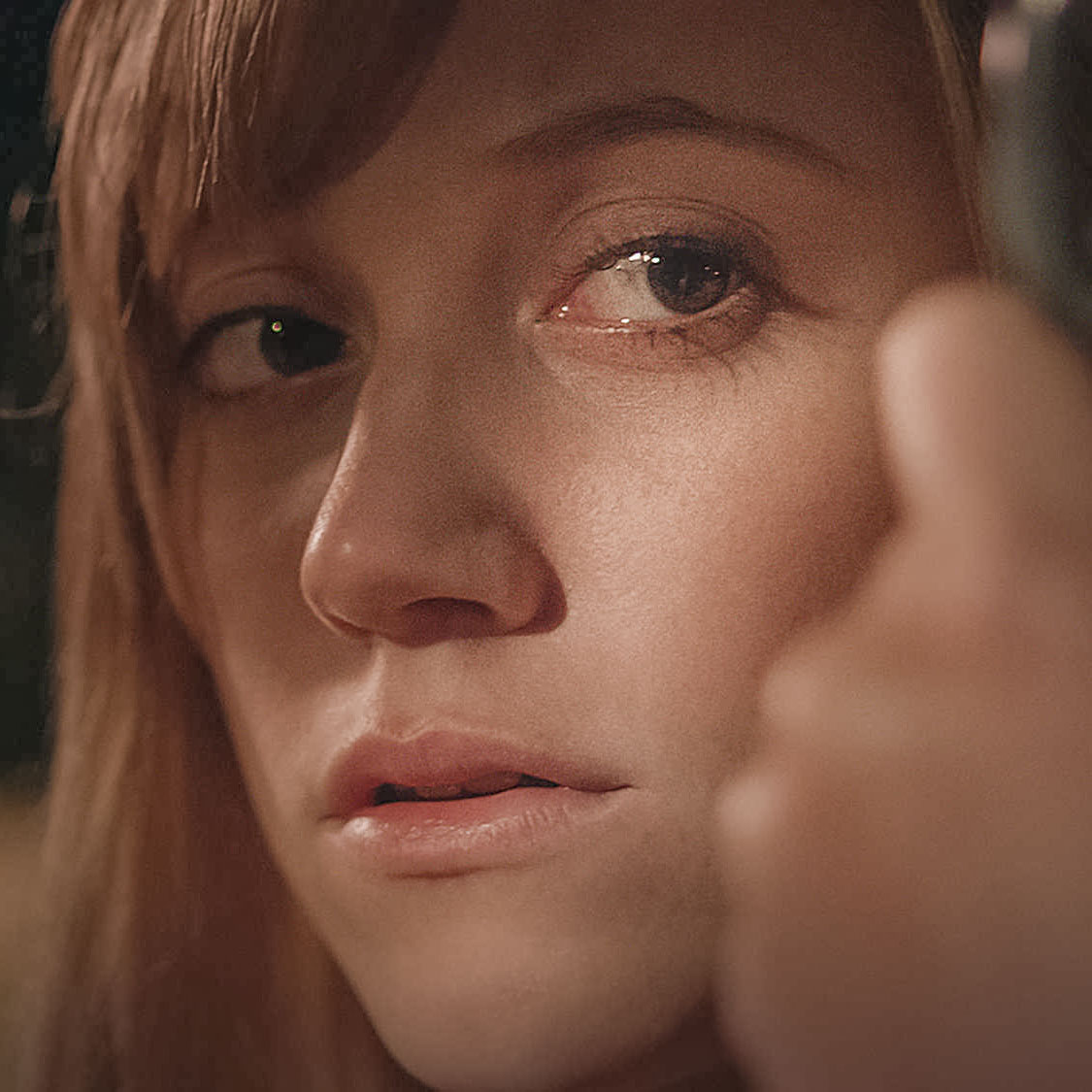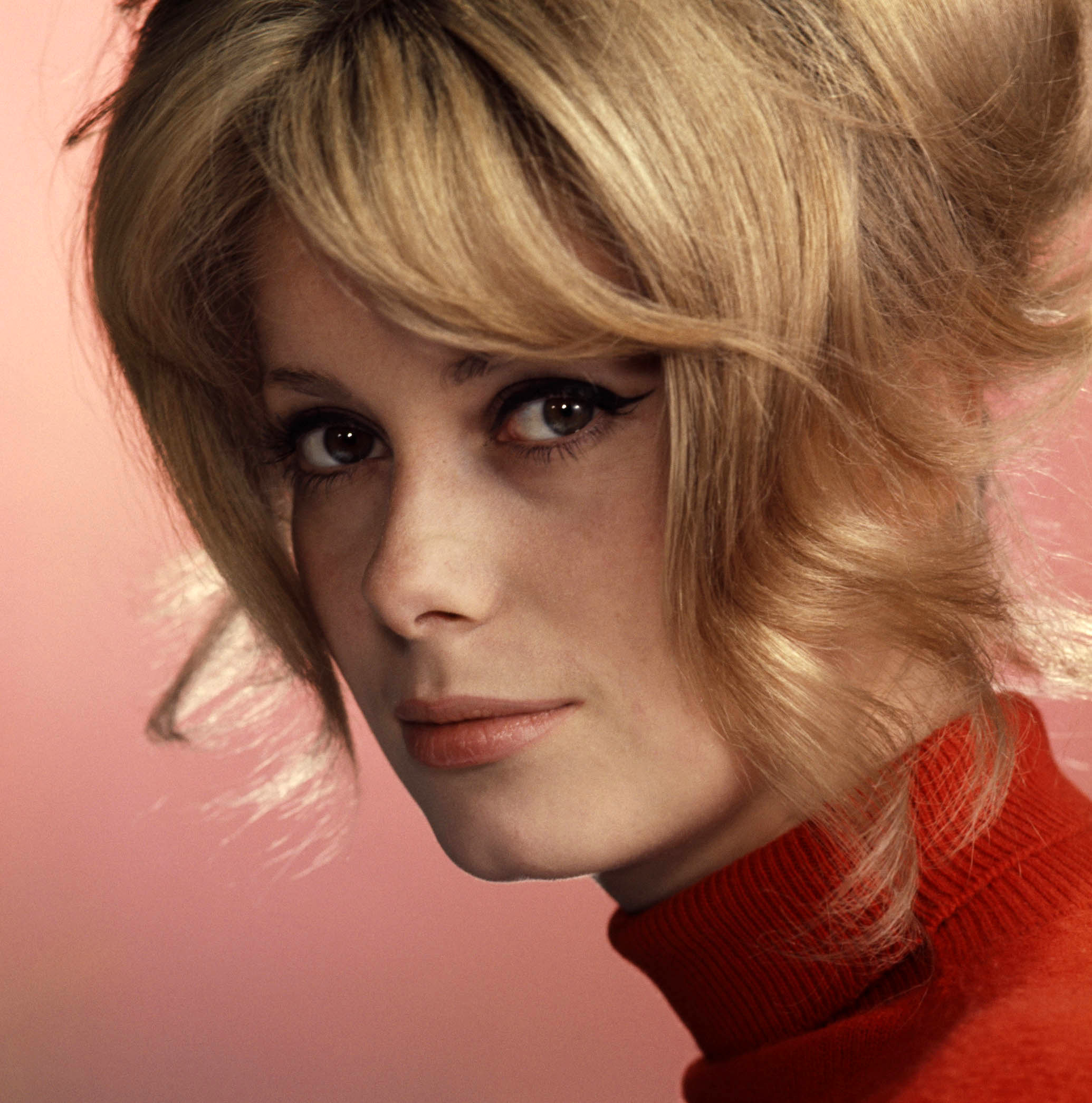It Follows
Original Sin or the Sin of Bad Decisions?
It Follows is the story of a young woman named Jay (Maika Monroe) and her fight to escape a malevolent spirit that follows her. The setup is simple enough: the spirit exists before the story begins. We never know who or what created it, but we learn soon enough that it is passed from one person to another by sexual intercourse. Jay sleeps with her new boyfriend Hugh (Jake Weary) for the first time and learns from him afterward that she is next.
Hugh (Jake Weary) has a strange way of explaining things to Jay (Maika Monroe)
If this sounds like the remake of an 80s horror film, you might not be far off. The cars, the setting, the clothing, and aspects of the plot are reminiscent of many horror films from that era (with quite the hat tip to John Carpenter). Even the style is similar: anamorphic lenses, lateral tracking shots, perceptual POV shots, practical locations, and dim lighting. Shots where the camera stays perfectly still, waiting for It to approach us. The spirit is every bit the filmic progeny of Michael Myers (Halloween). It is reminiscent of a zombie, but a zombie who has you and you alone on its mind, slowly walking to your location.
Maika Monroe is excellent as Jay Height. It kept hitting me how familiar she seemed. Afterward, I considered the similarities of the film to Roman Polanski's Repulsion and realized what a dead ringer she is for Catherine Deneuve.
It never stops following, no matter what form It takes
It Follows excels at being suspenseful. The idea of being followed by an unstoppable force is uncanny. It makes no logical sense. In lieu of logic, we replace order with the irrational: a place where any event, no matter how unreal, can become manifest. Sigmund Freud spoke about this effect in his widely disseminated essay on "The Uncanny" (1919). The idea that the familiar can become unfamiliar and then dangerous speaks to its threat to our sanity and sense of well being. These threats, however they manifest, always threaten our home. The spirit at one point continually wets itself, repeating its memory of a young girl who must have done the same before it murdered her. A fearful reaction repeated indefinitely, unable to restore balance.
Sigmund Freud, looking as pensive as psychiatry demands him to
Nocturnal Return of the Repressed
Freud was of the opinion that humanity's creation of civilized society required the repression of our primitive (but undiminished) desires. He argued in his work Civilization and Its Discontents that all of civilized society is a substitute for these instinctual modes. He states in his Introductory Lectures on Psychoanalysis (First Lecture), "We believe that civilization is to a large extent being constantly created anew, since each individual who makes a fresh entry into human society repeats this sacrifice of instinctual satisfaction for the benefit of the whole community" (15.23). He continues his discourse to explain that the primitive drives of uncivilized humanity, of which the sexual drive is the most powerful, are diverted toward other modes that are "socially higher and no longer sexual" (15.23). Instinct, as a result, is repressed. Even though the spirit will appear at all times of the day to attack, the curse is always passed during the night.
One of the many collapsed neighborhoods of Detroit
Jay and her friends live in a community that has collapsed. There are no parents present in their lives. Their world seems the result of an economic depression or, perhaps, a war fought on U.S. soil. Is It Follows saying, since white people statistically no longer breed as much, that their repression of this impulse is being punished? Jay, not innocent but more chaste than many women her age, is made to see through her pursuit that she must have sexual intercourse to buy herself time. The more men she sleeps with, the greater her odds at survival. The more primitive she acts, the more she is in tune with this new reality.
Water appears to be the only refuge from the spirit. We witness early in the film Jay's affinity with water. First she is alone in an above-ground pool and realizes she is being viewed by young boys who admire her. This same pool will eventually be thrashed open by the spirit so its threat becomes neutralized. It is in the climax of the story that water has its greatest impact. Having convinced her friends of the existential threat the spirit means to her, they band together at their childhood swimming pool with a plan to electrocute the spirit in the water. The initial plan backfires, but Paul (Keir Gilchrist) succeeds in shooting the spirit to an apparent death. Jay, weary and ready to collapse, crawls to the edge of the deck to glimpse what she hopes is the end of her nightmare. She sees the spirit's blood swirling and filling the entire pool. Is it the canceling of her sin with Hugh? Has she been cleansed and given a new menstrual cycle, free of the curse?
Jay Height (Maika Monroe)
The spirit seems not manifested to punish us for having sex. It seems a punishment for having sex in the wrong way, with the wrong mode of thinking. Hugh had sex with Jay, knowing that the she would act as a buffer between him and the spirit. He suggests to her on multiple occasions that she sleep with someone else so that it doesn't come after them, but the next person instead. Jay and Paul, in contrast to Jay and Hugh, have a special relationship. He was the first boy that kissed her and his concern has always been for her well being. When Jay and Paul make love, their compassion and respect for each other appear to free them from being followed.
The strangest element I found about It Follows was my suspicion afterward that these are events from the future. The girl with the mirror compact (with an eBook reader inside) reads Dostoevsky's The Idiot throughout the film, a story about a saint who can't exist in modern society. This is not a retro, hipster world, with an affinity for the 1980s. It's a world where most of the technology that still works was made without computers. Is the director saying that our world, obsessed with money, power, and sexual conquest, can only end in collapse?












